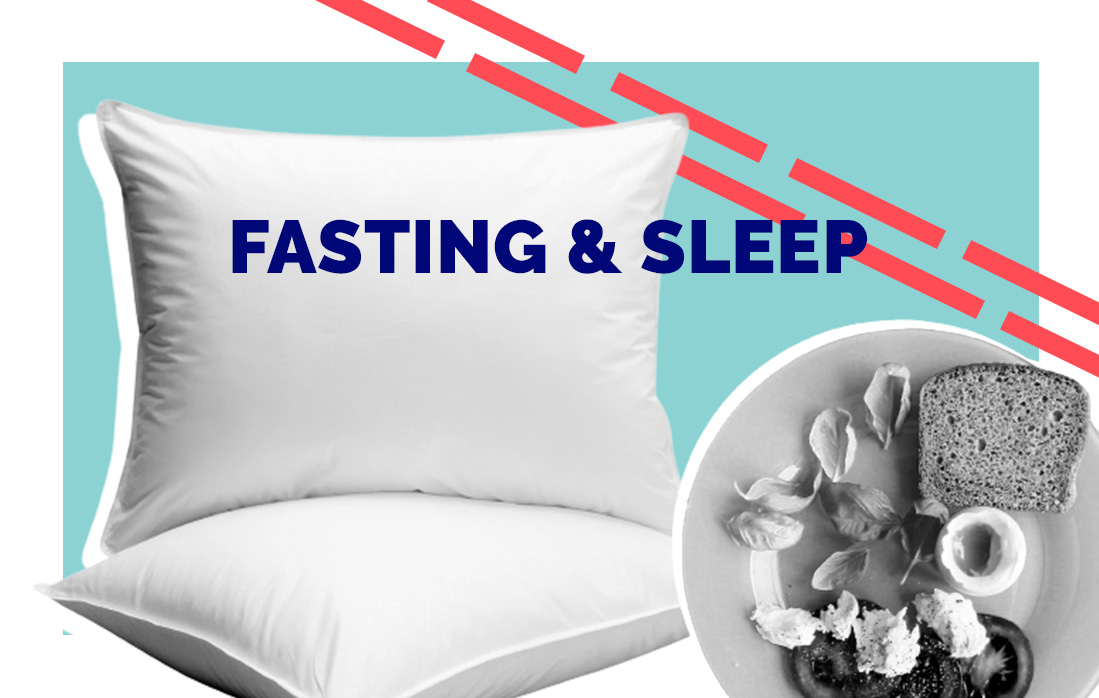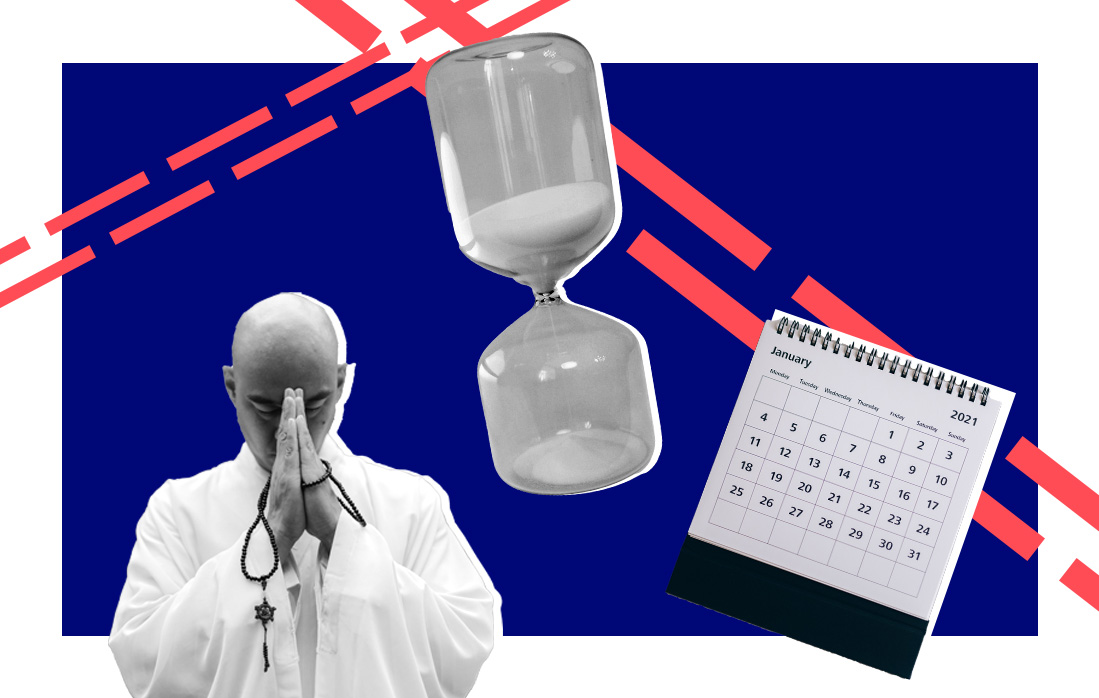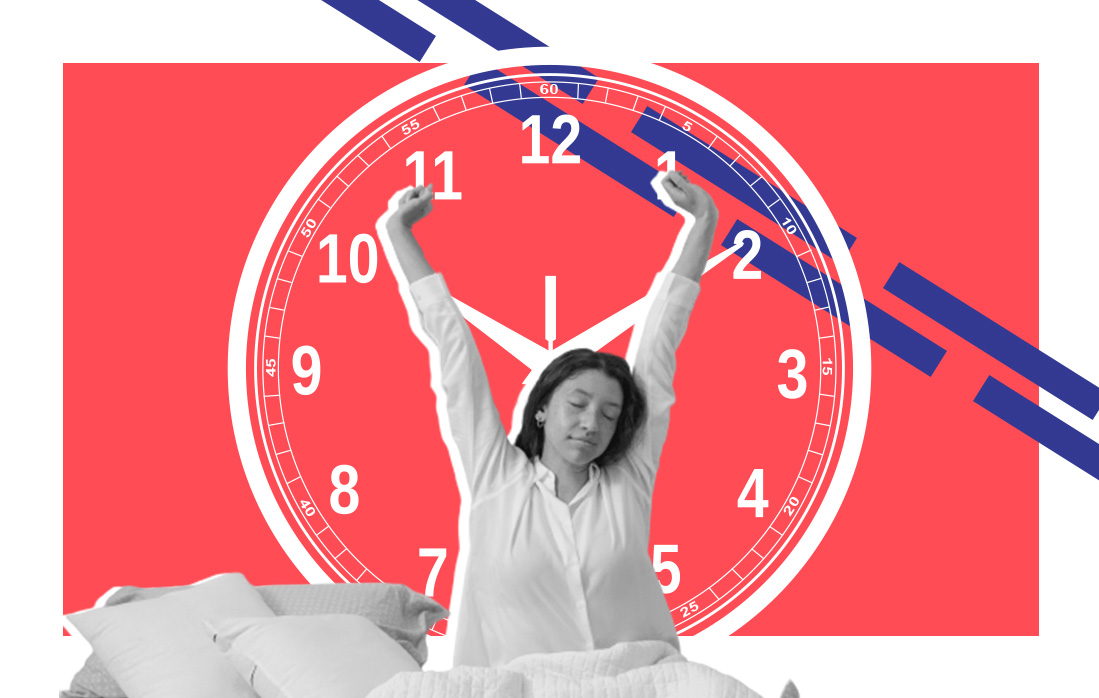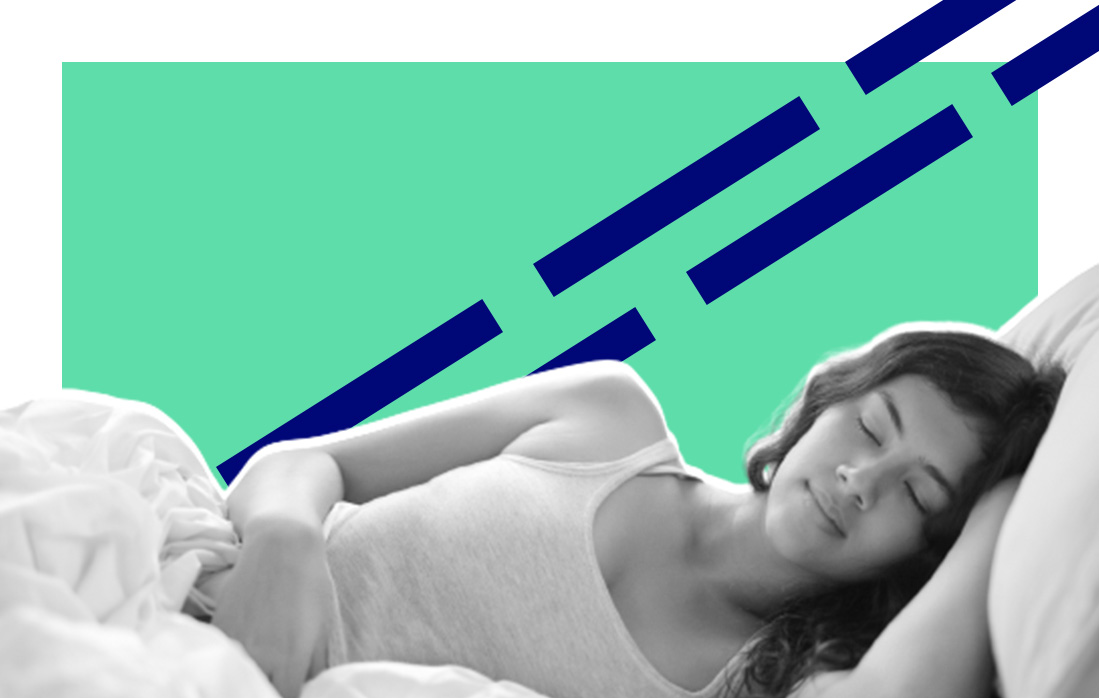Table of Contents

Fasting has been around for thousands of years; in fact, the Greek physician Hippocrates, considered one of the most outstanding figures in the history of medicine, recommended abstaining from food and drink for patients that exhibited signs of illness.
There’s no doubt that fasting has significant impacts on our bodies — that’s why it’s still a common practice to this day.
However, plenty of us have experienced going to bed hungry at some point in our lives. It’s not a fun feeling and leads to subpar sleep at best. For those who are considering fasting, read on to find out how you can optimize your sleep while maintaining the benefits of this ancient practice.
What Is Fasting?
Fasting is rooted in cultural, religious, spiritual, and/or health reasons — though in recent times, has found widespread popularity as a health tool. Below are some of the different methods of fasting.
Religious fasting. Many religions incorporate some form of fasting. Take Ramadan, for instance — that involves fasting from dawn to dusk! Fasting is also part of some Jewish and Christian practices.
Time-restricted fasting. This is when you have set fasting and eating windows. For example, the 16/8 method only allows for intake between 10 a.m. and 6 p.m. The 14/10 method limits that from 9 a.m. to 7 p.m. Either way, maintaining caloric intake during daytime hours is key for this fasting method.
Alternate day fasting. This form of fasting involves modified fasting every other day. On fasting days, caloric intake is restricted, say, to around 500 calories a day. On non-fasting days, caloric intake can go back to a person’s standard levels.

How Fasting Affects Sleep
It’s all about the circadian rhythm.
According to an article in the Oxford Academic Journal, the concept of time-restricted fasting itself is based on the concepts of the circadian rhythm. It is shown to improve metabolism by at least partly acting through the molecular circadian clock in animal models.
In this day and age of always being on-the-go, our bodies are especially susceptible to throwing off our biological clocks. Following the post-industrial era, humans have often experienced circadian rhythm disruptions due to suboptimal light exposure, sleep, and random eating patterns. Such circadian rhythm disruptions are correlated with the increased risk for numerous chronic metabolic diseases.
A number of controlled studies in humans and animals suggest that correcting these disruptions through controlled lighting or optimal sleep can prevent or lessen these risks.
More recently, studies have shown that food intake timing also has a powerful effect on influencing circadian rhythm and physiology. Thus, restricting food intake to align with this circadian rhythm is being shown to improve health conditions in several studies.
Consistency Is Key
Maintaining a routine eating schedule through time-restricted fasting will help regulate your circadian rhythm. But for those with sporadic lifestyles, like shift workers and college students, the effects are apparent.
Take, for instance, a cross-sectional study done on the correlation of university students’ eating and sleeping habits.
Of the 498 who participated in the study, those who skipped breakfast, ate late-night snacks, and replaced meals with snacks were, “at 1.20 times, 1.24 times, and 1.25 times higher likelihood of having poor overall sleep quality, respectively.”
Fasting May Help Optimize Your Body’s Functions
According to a study done by Vanderbilt University researchers, achieving optimal results, like weight loss, becomes easier thanks to the circadian rhythms of your body’s biological clock.
Carl Johnson, Cornelius Vanderbilt Professor of Biological Sciences and lead author of the research, says that “the body’s circadian rhythms regulate nighttime fat burning.”
During the study, researchers discovered that while the two sessions with their test subjects (middle-aged and older men) did not differ in the amount of food eaten or the amount of physical activity done by participants, it all came down to timing that nutrient availability.
Timing nutrient intake, combined with the body’s increased metabolism during sleep (thanks to circadian rhythms) kickstarted the fat-burning process.

How Much Sleep Do You Need When Fasting?
Though our bodies are biologically and evolutionarily wired to repair themselves during this fasting state, our modern world in which we are surrounded by artificial light 24/7 can make it harder to adjust to this natural feeding pattern.
To most effectively work with your body’s circadian rhythm, the CDC advises to aim to keep the lights level dim for the two hours before you plan on going to bed. Bright morning light will shift your sleep time earlier, so plan accordingly.
Who Shouldn’t Fast
Although fasting can be safe for many if done responsibly, there can also be risks associated with it. It’s advised for everyone to check with their doctor before fasting, but the following groups can especially be at risk.
Breastfeeding Or Pregnant Women
Medical experts say fasting while breastfeeding or pregnant can impose a danger to a child’s development. Fasting can also be a bad idea if you’re trying to get pregnant, as it can cause changes in your menstruation cycle and your metabolism.
Those With Medical Conditions
Anyone with preexisting medical issues or current health conditions, like diabetes, digestion issues, high blood pressure, heart disease, or blood sugar issues, should avoid fasting. Fasting can heighten blood glucose responses, disrupt the digestive system, and weaken the immune system, which can be a concern for people with health issues. Many medications also need to be taken with food in order to be absorbed into the bloodstream properly and have a positive effect.
Prepubescent Children And The Elderly
Doctors have warned against children fasting as it can cause health issues due to their smaller size, higher metabolism, and developing brain. There are also concerns with it causing tiredness and lack of focus when they need to be learning in school and mentally growing.
As for elderly people, especially those who are frail, research shows they’re at an increased risk for complications, like hypoglycaemia, hyperglycaemia, and metabolic decompensation, when fasting. For this reason, it’s essential to talk to your healthcare provider before deciding to fast.
Tips On Sleeping Better During A Fasting Period
Now that we’ve gone over fasting and how it goes hand-in-hand with your circadian rhythm, the key is to work with it! Keep in mind the following items when fasting to have a better night’s sleep.

Cut Off The Blue Light
Light color has a direct effect on circadian rhythm. Exposure to blue light during your body’s sensitive period can easily disrupt sleep, so it’s best to avoid using any electronic devices several hours before bed.
Exposure to white light during the day can help reinforce your sleep patterns at night. Red light has no effect on circadian rhythm, so you can use a dim one at night to stay on track for restful sleep. Yellow and orange lights have similar properties (but it’s important to note that the warm light mode on your phone will NOT have this same effect).
Stay Hydrated
According to the Mayo Clinic, dehydration happens when you use or lose more fluid than you take in, leading your body to not be able to carry out its normal functions. Dehydration can lead to fatigue, headaches, slow digestion, dizziness, and more. Since about a fifth of your fluids typically come from food, it’s key to increase your fluid intake when you’re fasting to stay hydrated.
Practice Mindfulness/Meditation
Mindfulness and meditation have been around for centuries as ways to achieve mental clarity and emotional stability, but they can also help bring the Zzz’s. Research shows meditation can decrease the intensity of brain waves and stress, which will not only get you to sleep faster — but also allow you to have higher-quality sleep.
Check out our ultimate guide to meditation here.
Allow For Good Sleep Hygiene
There are daily habits you can implement into your routine in order to fall asleep quicker at night. Small acts — like not drinking caffeine after 2 p.m. or setting your thermostat between 60 and 70 degrees Fahrenheit before bed — can make a big difference. You can learn more about those tips in our sleeping guide.
Above all, talk to your doctor, listen to your body, and you’ll be on the right path.
*Bridget Chapman contributed to additional reporting and research for this piece
Subscribe Today!
Get the latest deals, discounts, reviews, and giveaways!